Heat cooks food from "summary" of Salt, Fat, Acid, Heat by Samin Nosrat
When it comes to cooking food, heat plays a crucial role. It is the driving force behind the transformation of raw ingredients into a delicious meal. Heat is what causes proteins to denature and fats to melt, creating the complex flavors and textures that we associate with well-cooked dishes. Understanding how heat affects different types of food is essential for achieving the desired result in the kitchen. For example, proteins like meat and eggs undergo a series of changes when heated. Initially, they coagulate, becoming firmer and changing color. This process continues until the proteins reach a temperature where they start to toughen and eventually dry out. On the other hand, fats are essential for carrying flavors and creating a rich mouthfeel in dishes. When heated, fats can reach their smoking point, which can result in off-flavors and burnt food. However, when used correctly, fats can help conduct heat evenly and create a crispy exterior on foods. Understanding how to control heat is crucial for successful cooking. Different cooking methods require different levels of heat, and mastering these techniques can elevate your dishes to a new level. Whether you are roasting a chicken in the oven or searing a steak on the stovetop, knowing how to adjust the heat can make all the difference in the final outcome.- Heat is a powerful tool in the kitchen that can make or break a dish. By understanding how it interacts with different ingredients and practicing proper heat control, you can unlock a world of culinary possibilities and create meals that are truly unforgettable.


